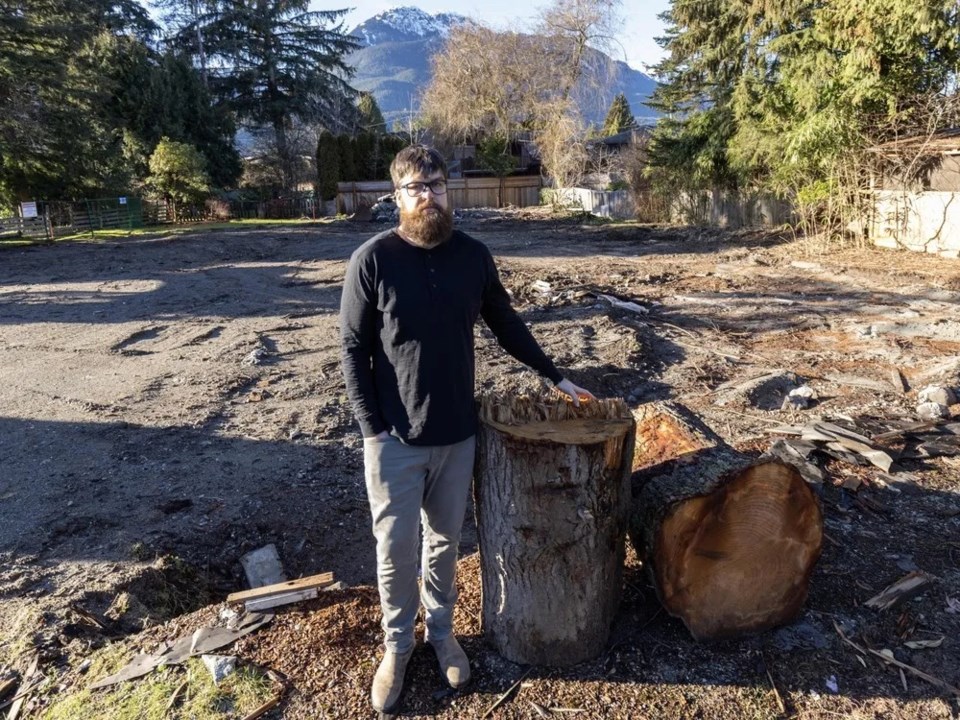The cases come as some homeowners have been going to court to prevent the building of multi-unit housing, citing restrictive covenants.

Two recent court rulings suggest B.C. homeowners may have a tough time citing decades-old land title covenants when challenging densification of their neighbourhoods.
A B.C. Supreme Court judge ruled that a covenant registered in the late 1950s on the land titles of about 200 properties in Squamish is obsolete and should be cancelled. The covenant prohibited the construction of anything other than a single-family residence.
In another B.C. Supreme Court case, a judge changed the language of a covenant registered on a set of residential properties in Nanaimo since the late 1970s. He dropped a phrase that specifies dwellings will be “for not more than one family” because the restriction “is “inherently vague and uncertain.”
The cases come as some homeowners have been going to court to prevent the building of multi-unit housing, citing restrictive covenants.
The province has said its legislation requiring municipalities to allow multi-unit housing on all residential lots does not override these restrictive covenants. It has repeatedly told property owners to seek legal advice.
The covenants, registered by original builders or developers looking to market the homes, bind many homeowners in perpetuity since most do not have expiry dates.
It’s not known how many land titles in the province contain these covenants and it takes digging into each one’s specifications on building height, floor space or the permitted number of domestic pets to understand if they would impede provincial legislation.
Dennis and Andrea Smith sought to stop a four-unit townhouse project from being built on a neighbouring property in Squamish by developer Clearwater Park GP Inc., arguing it would change the character of the area, reduce their privacy, increase traffic and reduce pedestrian safety.
But Justice Frits Verhoeven ruled that “circumstances have changed” since the creation of the 1959 covenant and it has been “widely ignored” for years, with residents making renovations and adding secondary suites.
His ruling noted that Squamish is one of Canada’s 10 fastest-growing communities and that its population grew more than 22 per cent from 2016 to 2021 and is forecast to grow from 24,000 in 2021 to above 40,000 by 2040.
Mike Van Capelle, owner of Clearwater, said he hopes the ruling sets a precedent.
He said there are hundreds of properties in Squamish alone that have the same restrictive covenant but they no longer have a designated “granter” or “approving officer” to remove or alter it because a company no longer exists or individuals have died.
Said Van Capelle: “I know of multiple not-for-profit organizations that were waiting for the result of this court case before they proceeded with land purchases that would ultimately result in affordable housing units being delivered.
“I hope this gives developers, societies and not-for-profits the confidence to move forward with projects without the fear of having a neighbour file an injunction like we dealt with. We spent a ton of money and wasted a pile of time on this when we could have been building housing.”
In Nanaimo, DBKS Homes Ltd. wants to build a fourplex on its property and sought to modify a covenant registered on the land titles of all properties in the same subdivision.
One property owner in the subdivision, Rosemary Taylor, opposed DBKS Homes’ petition and submitted that the term “single-family dwelling” is not difficult to understand.
But Judge Douglas Thompson said that specific term isn’t used in the covenant. Instead, it refers to a “private dwelling for not more than one family,” which he agreed makes it an “uncertain and unenforceable covenant.”
His ruling keeps the covenant language that permits only one private dwelling house that is not less than 1,400 square feet, exclusive of garage and other outbuildings, but he deleted the phrase specifying that it had to be “for not more than one family.”
Read more stories from the Vancouver Sun here.